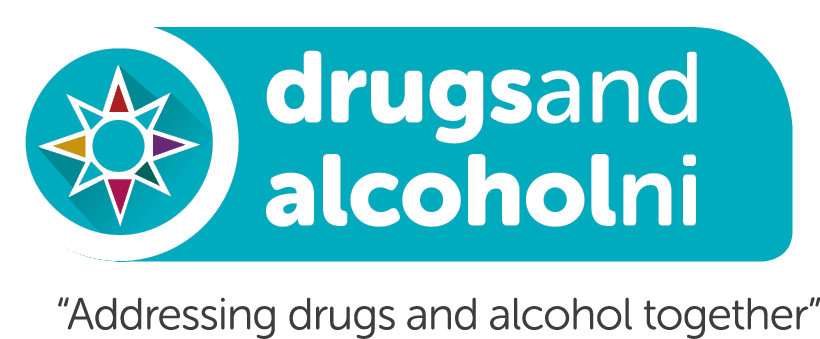In 2021 in Northern Ireland there were a total of 359 alcohol-related deaths compared with 213 drug-related deaths during the same year (NISRA).
Poverty plays a part – drug related deaths in the most deprived 20% of NI account for 44% of all drug related deaths in the last 5 years.
(Annual 2021 Alcohol-Specific Deaths statistics, NISRA)
(Drug-related and drug-misuse deaths in Northern Ireland, 2021, NISRA)
Drug use in NI
In terms of illicit drugs, cannabis and cocaine remain the most misused illegal substances in NI.
Of those who accessed treatment services in 2021/22, cannabis was the most commonly reported drug used:
- Cannabis (62.0%)
- Cocaine (49.4%)
- Benzodiazepines (23.9%)
- Pregabalin (16.7%)
Drug misuse, compared to alcohol, can vary in respect of scale, pattern and intensity.
According to the NI Health Survey for 2021/22 2, four-fifths (79%) of adults aged 18 and over reported that they drank alcohol. Whereas according to the All-Ireland Drug Prevalence Survey for 2014/15 (27.7%) of respondents aged 15-64 who were surveyed reported ever having taken illegal drugs.
Prescription drug misuse
Medication, when used as prescribed by a GP, and under their care and supervision, can be extremely beneficial to someone in poor health – physically or mentally. However, there is a growing illicit market for prescription medication – both real and counterfeit – in Northern Ireland. Medication such as Pregabalin, Tramadol, Diazepam, and Temazepam are sourced through family or friends, on the street or via the internet and then often used alongside or in combination with other drugs.
Drug-related deaths involving pregabalin have risen consistently since its first appearing in statistics in 2013. It had risen from 9 in 2016, and was 71 in 2021.
As of April 2019, Pregabalin (brand name – Lyrica/street name – Buds) has been classified as a class C drug when used without a prescription or illegally shared or sold.
The last two years has seen a sharp increase in the number of drug-related deaths where a psychoactive substance was mentioned on the death certificate, from 11 in 2019 to 73 in 2021.
This increase was mainly down to mentions of flubromazolam, flualzaprolam and etizloam on death certificates.
(Drug-related and drug-misuse deaths in Northern Ireland, 2021 NISRA)
Alongside the usual intelligence and enforcement measures conducted by the PSNI, the ‘SPPG’ of Department of Health works closely with GPs to monitor prescribing rates for medications that are prone to misuse and the PSNI works closely with Customs officials and Royal Mail to try an intercept illegal and counterfeit medications from coming into the country.
Polydrug use
In the past few years, polydrug use (using a combination of drugs) has increasingly become the norm for drug users. Although specific risks depend on which substance or substances are taken, one of the biggest risk factors is using more than one drug at a time or ‘mixing’. This can include alcohol, over-the-counter medications, prescription drugs (such as Diazepam, Tramadol, Lyrica/Pregabalin) and illegal or illicit drugs (such as MDMA/ecstasy, cocaine, heroin).
Mixing any combination of prescription drugs, over-the-counter drugs, illicit drugs, and/or alcohol can be unpredictable and dangerous. Most fatal overdoses involve use of more than one type of drug.
|
In Northern Ireland, over two-thirds (68.1%) of drug-related deaths in 2021 involved two or more drugs. |
More information on the risks and how to reduce them can be found in the PHA’s ‘Mixing’ booklet – click here to view
Heroin
Historically, heroin use in NI has been much lower in NI than elsewhere in the UK and Ireland. This was originally attributed to higher levels of security during The Troubles, and lack of access. Awareness of the availability of heroin in NI grew in the late 1990s, and led to the establishment of the first NI government-funded needle exchanges in 2001. However, since around 2014, there has been evidence (such as a significant rise in needle exchange visits and police seizures) of increasing heroin use in NI.
In 2019/20 there were of 34,464 visits to needle exchange services compared to 26,713 visits 5 years ago.
Legislation
The Misuse of Drugs Act 1971 is the primary legislation for the United Kingdom and came fully into effect in 1973.The main purpose of the Act is to prevent the misuse of controlled drugs and achieves this by imposing a complete ban on the possession, supply, manufacture, import and export of controlled drugs except as allowed by regulations or by license from the Secretary of State.
You can get a fine or prison sentence if you take, carry, make or sell drugs or psychoactive substances. The penalties depend on the drug and the amount you have, and whether you’re also dealing or producing the drug.
More information about those drugs banned under the Misuse of Drugs Act 1971 can be found at www.gov.uk/penalties-drug-possession-dealing
Key messages in relation to drug misuse
- It’s never a good idea to take drugs for recreational use. The truth is that all drugs carry risks. We strongly recommend that you do not take them.
- You should only ever take medication that has been prescribed for you by your doctor or another medical professional, and according to dosage instructions.
- Mixing any drug, including prescription medication, with another drug, or with alcohol, increases the risk of dangerous side effects including death by overdose.
- If you think you might have a problem with drugs and/or alcohol or you are concerned about a loved one and would like to get help please visit our ‘Services Near You’ section.

Talk to someone, you are not alone.
Lifeline counsellors are available 24 hours a day, seven days a week to listen and help, in confidence.
Deaf and hard of hearing Textphone users can call Lifeline on 18001 0808 808 8000. Calls to Lifeline are free to people living in Northern Ireland who are calling from UK landlines and mobiles.

Something went wrong with the twitter. Please check your credentials and twitter username in the twitter settings.
Problem displaying Facebook posts.

